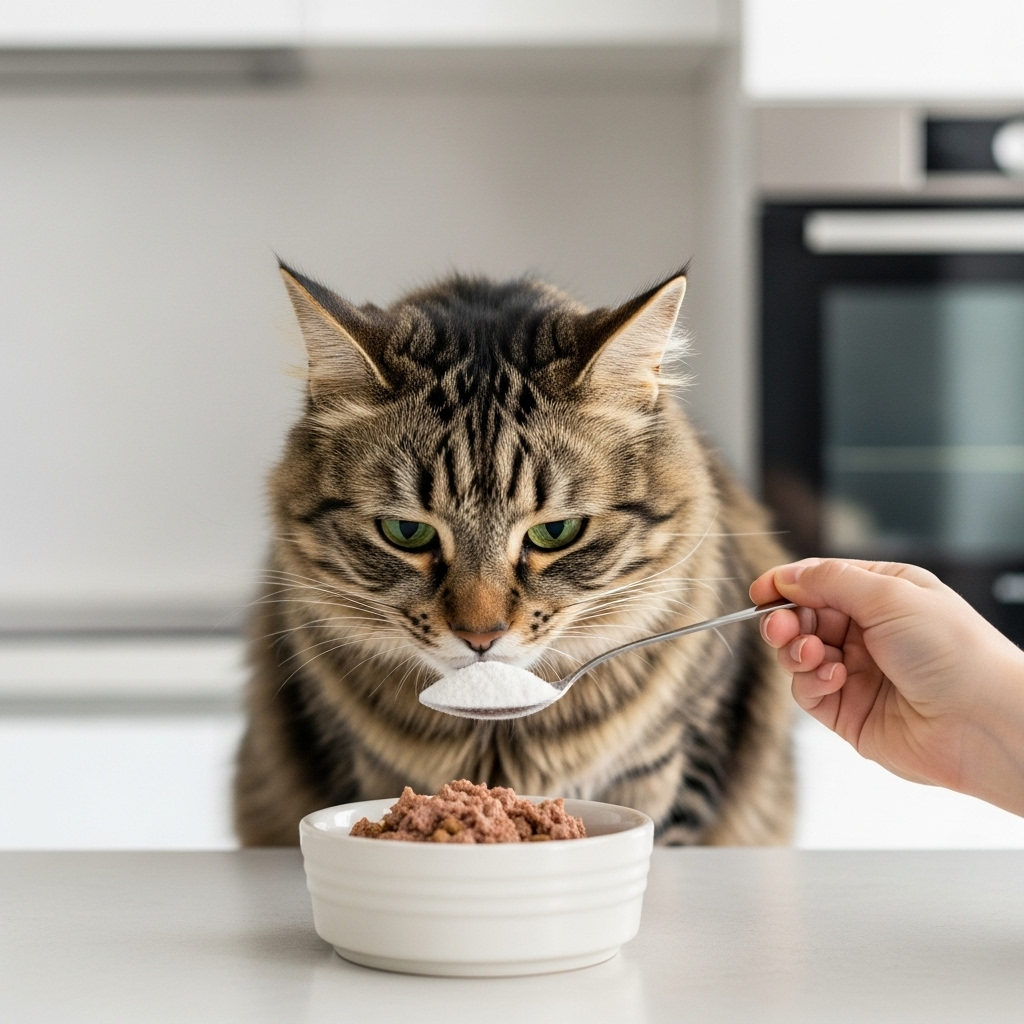Probiotics for Cats With Sensitive Stomachs: What to Know

If your cat struggles with occasional vomiting, loose stools, or chronic digestive upset, you may have read about probiotics as a possible support. Probiotics for cats sensitive stomach can help some kitties by supporting normal gut balance and digestion. This guide explains what probiotics are, how they may help cats with sensitive stomachs, how to choose and use them safely, and when to consult your veterinarian.
What are probiotics?
Probiotics are live microorganisms—usually specific strains of bacteria or yeasts—that, when given in adequate amounts, may confer health benefits. In pets, probiotic products are formulated to support gastrointestinal health by promoting a balanced microbial environment in the gut.
How probiotics may help cats with sensitive stomachs
Cats with sensitive stomachs often show symptoms like mild chronic diarrhea, occasional vomiting, or soft stools after dietary changes. Probiotics for cats sensitive stomach problems may:
- Help stabilize the intestinal microbiome after dietary changes or antibiotics.
- Support digestion and nutrient absorption.
- Reduce frequency or severity of occasional diarrhea in some cats.
- Modulate local gut immune responses, which can be beneficial in certain chronic conditions.
It’s important to note that responses vary by cat and by product. Probiotics are supportive care—not a cure—and they work best as part of a broader plan that may include diet adjustment and veterinary evaluation.
Common probiotic strains used in cats
Not all probiotics are the same. Some strains have more research or practical experience in pets. Examples commonly found in feline products include:
- Enterococcus faecium (e.g., SF68) — often used in veterinary products for dogs and cats.
- Lactobacillus species — such as L. acidophilus; supportive in some GI issues.
- Bifidobacterium species — used in some multi-strain formulations.
- Saccharomyces boulardii — a beneficial yeast sometimes used for acute diarrhea and antibiotic-associated issues.
Products vary in strain, dose (CFU), and supporting ingredients. Choose a product specifically formulated for cats or one your veterinarian recommends.
Product forms and how to choose one
Probiotics for cats sensitive stomach come in several forms:
- Powders or sachets to sprinkle on food
- Paste or gel tubes for easy dosing
- Freeze-dried capsules, chewables, or treats formulated for cats
- Fortified foods or diets containing probiotics
When choosing a product, look for:
- Products labeled for cats or pets (not only for humans).
- Clear strain identification and colony-forming unit (CFU) counts at time of manufacture or guaranteed through expiration.
- Storage instructions (some need refrigeration; others are shelf-stable).
- Minimal filler ingredients that your cat may react to.
- Veterinarian or veterinary nutritionist recommendation when possible.
How to start probiotics safely
Step-by-step approach
- Talk with your veterinarian before starting, especially if your cat is very young, elderly, pregnant, or immunocompromised.
- Choose a product made for cats and follow the manufacturer’s dosing instructions or your vet’s recommendation.
- Introduce slowly: start at a lower dose for a few days and increase to the recommended dose if your cat tolerates it.
- Give with food unless the product directions say otherwise—food helps buffer stomach acid and improves acceptance.
- Monitor stool quality, vomiting, appetite, energy level, and any new symptoms for 1–4 weeks.
Expected effects and side effects
Some cats show improved stool consistency within a few days to a few weeks. Mild side effects like increased gas or soft stools can occur temporarily as the gut adjusts. If you see worsening signs—persistent vomiting, blood in stool, lethargy, or loss of appetite—stop the probiotic and contact your veterinarian.
When probiotics might be most useful
- Short-term diarrhea after dietary change or stress
- Antibiotic-associated diarrhea (discuss with your vet)
- Mild chronic diarrhea as part of a broader diagnostic and management plan
- Support during dietary transition or after intestinal upset
Probiotics are less likely to resolve severe or sudden-onset illnesses on their own. Always seek veterinary care for severe, persistent, or bloody diarrhea and repeated vomiting.
Pros and Cons
| Pros | Cons |
|---|---|
|
|
When to call the veterinarian
Contact your vet right away if your cat has any of the following:
- Persistent vomiting or diarrhea lasting more than 24–48 hours
- Blood in vomit or stool
- Severe lethargy, collapse, or dehydration
- Sudden weight loss, severe pain, or changes in behavior
A thorough workup may be needed to find the underlying cause of a sensitive stomach—food intolerance, inflammatory bowel disease, parasites, infections, metabolic disease, or other issues.
FAQ
1. Can I give my cat human probiotics?
Some human probiotics contain strains and doses that are safe, but many are formulated for humans and may include ingredients cats can’t tolerate. It’s safer to use a product labeled for cats or to check with your veterinarian first.
2. How long before I see results?
Some cats improve in a few days, but it can take 2–4 weeks to notice consistent benefits. If there’s no improvement after a month, revisit the plan with your vet.
3. Are probiotics safe for kittens and senior cats?
Many probiotics are safe, but kittens, pregnant cats, seniors, and immunocompromised cats need veterinary guidance before starting any supplement.
4. Can probiotics replace a diet change?
No. Probiotics can support digestive health but usually work best alongside appropriate dietary management. If diet sensitivity is suspected, a veterinary-recommended elimination or hypoallergenic diet trial may be needed.
Key takeaways
- Probiotics for cats sensitive stomach issues can support gut balance and may reduce mild diarrhea or digestive upset for some cats.
- Choose products made for cats with clearly identified strains and follow dosing instructions or your vet’s guidance.
- Introduce probiotics gradually, monitor your cat, and allow a few weeks to assess benefit.
- If symptoms are severe, persistent, or include blood, contact your veterinarian promptly—probiotics are supportive, not a replacement for veterinary care.
Note: Always consult your veterinarian before starting any supplement, especially for kittens, pregnant cats, seniors, or cats with underlying health conditions.
Disclaimer: This article provides general information about probiotics for cats with sensitive stomachs and is not veterinary medical advice. Individual cats have different health needs. For diagnosis and treatment options specific to your cat, consult your veterinarian.

Leave a Reply